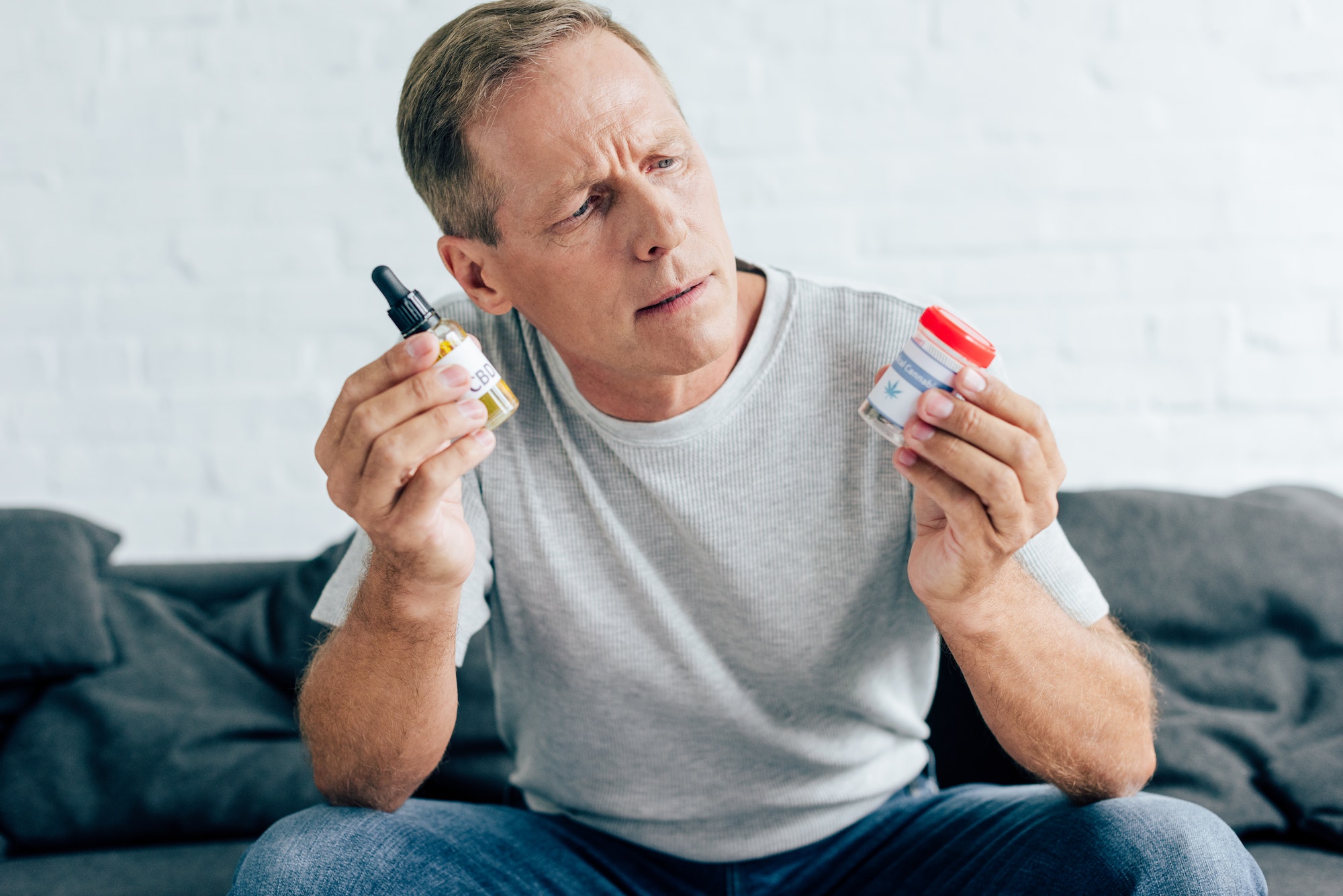
What is the difference between delta-8-THC and delta-9-THC?

Cannabis has been a significant subject of scientific and medical research for decades. Two of its most intriguing compounds are Delta-8 THC and Delta-9 THC. While they share similar names, there are crucial differences. This article will explore these two compounds, their effects, and their legal status.
Delta-8 THC
What is Delta-8 THC?
Delta-8 THC, or delta-8-tetrahydrocannabinol, is a minor cannabinoid found in the cannabis plant. It’s a variant of THC that is much less abundant than its more famous cousin, Delta-9 THC.
Delta-8 THC Effects
The effects of Delta-8 THC are often described as a smoother, less anxious psychoactive experience than Delta-9 THC. This makes it appealing for those seeking to decrease nausea or increase appetite, among other benefits.
Delta-8 THC Legality
Delta-8 THC falls into a legal gray area. Since it can be derived from both cannabis and hemp, its legal status can vary depending on the source and the state laws.
Delta-9 THC
What is Delta-9 THC?
Delta-9 THC, or delta-9-tetrahydrocannabinol, is the primary psychoactive component of cannabis. It’s what most people refer to when they talk about THC.
Delta-9 THC Effects
Delta-9 THC is known for its potent psychoactive effects. These include feelings of euphoria, heightened sensory perception, and altered time perception.
Delta-9 THC Legality
In contrast to Delta-8 THC, Delta-9 THC is generally illegal in most states and federally, except for medical or recreational use in certain states.
Key Differences
Chemical Structure
Although Delta-8 and Delta-9 THC have similar names, they differ slightly in their chemical structure, which results in different psychoactive potency.
Psychoactive Effects
Delta-9 THC has stronger psychoactive effects compared to Delta-8 THC. This makes Delta-8 THC a better choice for individuals who want therapeutic benefits without a strong high.
Legal Differences
Delta-8 THC tends to be more legally accessible than Delta-9 THC due to its presence in hemp, which is federally legal in the US.
Use Cases
Delta 8 THC Uses
Delta-8 THC is often used for its anti-nausea, anti-anxiety, and appetite-stimulating effects.
Delta-9 THC Uses
Delta-9 THC is commonly used for pain relief, sleep aid, and recreation due to its potent psychoactive effects.
Safety & Side Effects
Delta-8 THC Side Effects
Delta-8 THC is generally considered to have fewer side effects than Delta-9 THC. However, it can still cause dry mouth, red eyes, and in rare cases, anxiety or paranoia, particularly at high doses.
Delta-9 THC Side Effects
Delta-9 THC, being more potent, has more pronounced side effects. These can include dry mouth and eyes, increased heart rate, coordination problems, and paranoia or anxiety. Long-term use may lead to cognitive impairment and mental health issues.
Conclusion
In summary, while Delta-8 THC and Delta-9 THC share some similarities, their differences are significant. From their chemical structures to their psychoactive effects and legality, understanding these differences is crucial. Whether one is better than the other depends on individual needs, tolerance, and legal restrictions. Always consult with a healthcare provider before starting any new supplement regimen.
FAQs
-
- Is Delta-8 THC less potent than Delta-9 THC? Yes, Delta-8 THC is less potent in its psychoactive effects compared to Delta-9 THC.
-
- Is Delta-9 THC legal? The legality of Delta-9 THC varies by state and country. It’s generally illegal except for medical or recreational use in certain jurisdictions.
-
- Can Delta-8 THC cause anxiety? While Delta-8 THC is less likely to cause anxiety than Delta-9 THC, high doses can still lead to anxiety or paranoia in some individuals.
-
- What are the medical uses of Delta-8 and Delta-9 THC? Both Delta-8 and Delta-9 THC have potential therapeutic benefits. Delta-8 THC is often used for its anti-nausea, anti-anxiety, and appetite-stimulating effects, while Delta-9 THC is used for pain relief, as a sleep aid, and recreationally.
-
- Which one should I use, Delta-8 or Delta-9 THC? The choice between Delta-8 and Delta-9 THC depends on individual needs, tolerance, and legal restrictions. It’s best to consult with a healthcare provider before starting any new supplement regimen.
Related Post
Search
Want to sell Deltrium in your store?
Learn more about wholesale and the Deltrium experience.




